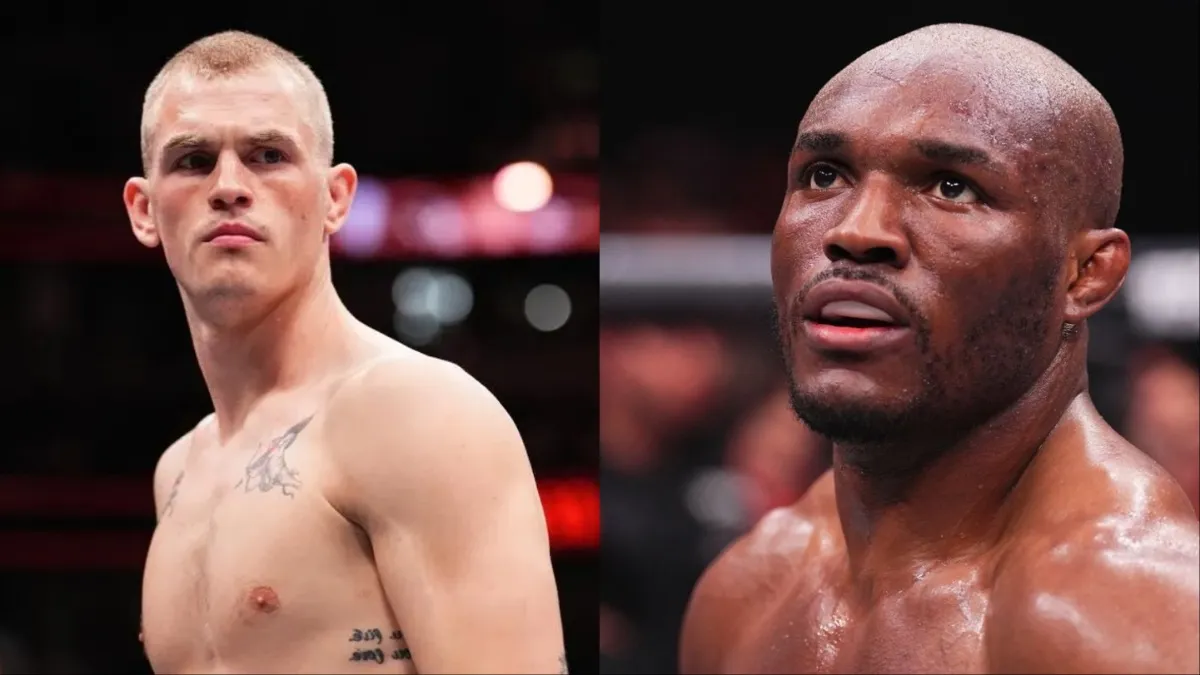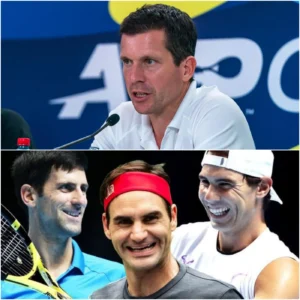Kamaru Usman responded to Ian Machado Garry when he accused him of “running away” from the fight

Ian Machado Garry, the rising welterweight star, faced a significant setback at UFC 310, where he suffered his first career defeat against Shavkat Rakhmonov. The match took place at the T-Mobile Arena in Las Vegas, a highly anticipated event that saw Garry stepping in on short notice after the champion Belal Muhammad had to withdraw. Following his loss, Garry did not hold back his feelings and accused former champion Kamaru Usman and interim champion Colby Covington of “running away” from a potential fight with him.
Usman’s Defiant Response
In response to Garry’s allegations, Usman appeared on the podcast Pound 4 Pound, where he addressed the situation head-on. “Does he deserve that?” Usman began, questioning whether Garry’s claims held any merit. He continued, “Before this fight, a lot was said, a lot was fabricated. I’m not running away from anyone! Not a single person. I don’t know how many guys are running away from anyone because this is the game!”

Usman’s comments highlight the competitive nature of the UFC, where fighters are often pitted against each other based on rankings, skills, and marketability rather than personal fears. He emphasized the financial reality of fighting, stating, “We fight to make money. If we don’t fight, we don’t get paid. Anyone in the UFC has to step up to get their paycheck.” This perspective underscores the notion that fighters must remain active and competitive to secure their livelihoods, making the idea of “running away” seem absurd.
Challenging Garry’s Perception
Usman did not shy away from questioning Garry’s perception of himself within the sport. “What do you mean, ‘Oh yes, they’re scared of me’? Who are you? Who am I supposed to be afraid of?” Usman’s rhetorical questions challenge Garry’s self-importance and serve to remind him of the established hierarchy in the UFC. This is particularly significant given Usman’s status as a former champion, which grants him a level of respect and recognition that Garry is still working to attain.
Usman speculated that Garry’s frustration likely stemmed from his desire for Usman to step in as a replacement for his late-notice fight. “I guess he was upset because he wanted me to be the one to replace him on short notice for his fight. Who is that guy that I’m supposed to replace him?” This remark highlights the unrealistic expectations that sometimes accompany the pressure of competition, especially for fighters who are still climbing the ranks.
The Competitive Landscape
The back-and-forth between Usman and Garry illustrates the competitive landscape of the UFC, where fighters often find themselves defending their reputations in public forums. Usman’s experience and achievements in the octagon allow him to dismiss Garry’s claims with authority. In contrast, Garry’s loss against Rakhmonov may have fueled his desire to call out prominent fighters, but Usman’s retort serves as a reminder that respect and recognition in this sport are earned through dedication and performance.

Conclusion
Kamaru Usman’s response to Ian Machado Garry’s accusations not only defends his legacy but also emphasizes the realities of competing at the highest levels of mixed martial arts. As fighters navigate the complexities of their careers, public perceptions, and the pressure to perform, Usman’s words resonate with the ethos of the sport: a fighter’s worth is determined inside the octagon, not through rhetoric.
Moving forward, both Usman and Garry will be looking to shape their respective paths in the welterweight division. With Usman aiming to reclaim his championship status and Garry seeking redemption after his recent loss, fans can expect an exciting future filled with potential matchups and rivalries that could captivate audiences and redefine their careers in the UFC. The dynamic interplay between established champions and rising stars remains a hallmark of the sport, ensuring that the competition will always be fierce and engaging.







